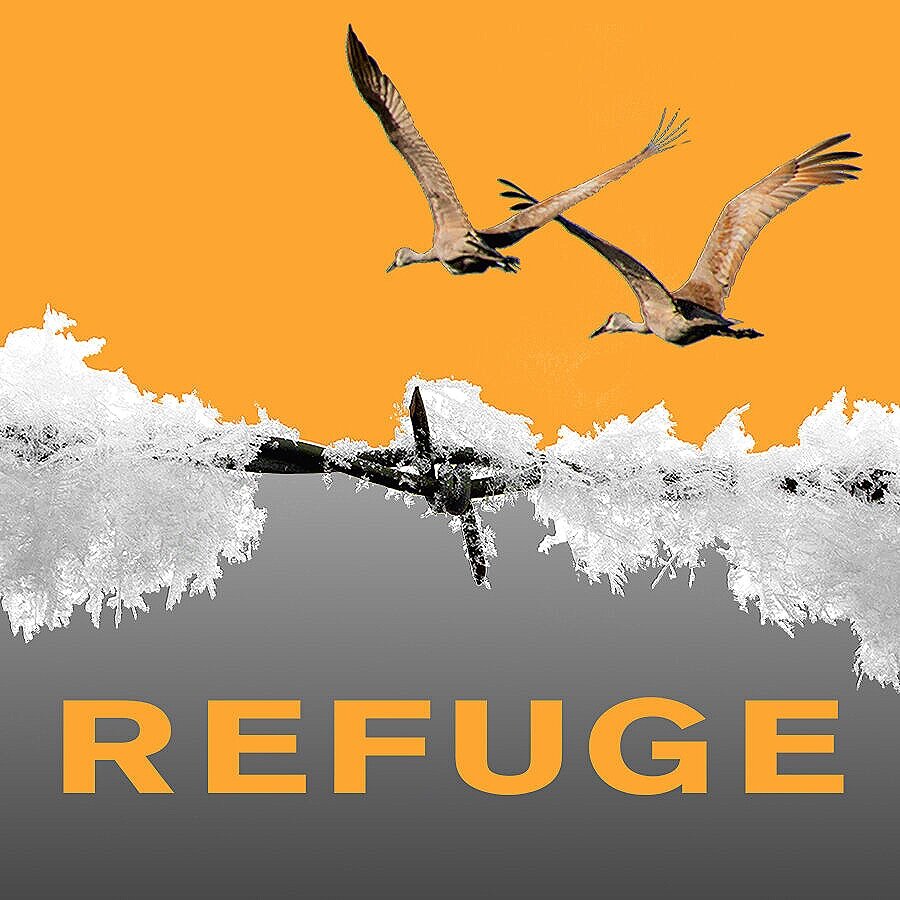THE PROCESS OF MAKING REFUGE HAS SHARPENED our focus around the many, sometimes contradictory definitions of protest. We’re fascinated with the idea and scope of public protest—what happens when people gather to sit silently, raise voices, demand change, or simply to feel part of something larger than themselves? Is this constitutionally protected right applied equally across all populations, and who is really heard?
In a time when many of our American institutions—government, law enforcement, mainstream media—face unprecedented scrutiny and the information we receive is often oversimplified or distorted, we’ve worked to be physically present to observe and chronicle demonstrations, rallies, and protests deeply affecting not only our communities, but our nation as a whole.
By exploring the cathartic, multi-sensory, and truly multi-layered nature of protest—whether during the occupation of the Malheur National Wildlife Refuge over perceived government overreach or in the streets of downtown Portland over the police murders of George Floyd and Breonna Taylor—we’ll be better equipped to weather new storms, turn away from binary solutions and stereotypes, and become more involved participants in the public sphere.
Here are a few images and quotes from Refuge regarding protest.
CHARLOTTE RODERIQUE, Chair, Burns Paiute Tribe
“Why is it that when the Indians protest, they waste no time in coming to confront us, armed in full riot gear, with live ammunition. What are we gonna do? Hit them with a drumstick?”
LISA LUDWIG, Defense Attorney, Stand-by Counsel for Ryan Bundy during Bundy Trials
“Sometimes it’s hard to be in a place where public discourse is happening.”
“The best response to speech you don’t like is counter-speech. That’s the answer. That’s always the answer.”
GEORGIA MARSHALL, Harney County Rancher
“The community got together, we held our signs, and we let our voices be heard...a moment that started people saying, ‘We can do this.’”
DAVE WARD, Harney County Sheriff
“A lot of folks believed they (Hammonds’ supporters) were doing something good; they wanted to protest what they thought was an unfair sentence. I support that, because it’s an appropriate use of our rights.”
BILLY WILLIAMS, U.S. Attorney, Oregon District
“You can protest anything you want to. I draw the line at doing it at the end of a gun.”
RICK KOERBER, Paralegal Assistant to Ryan Bundy during Bundy Trials
“Political activism always looks distasteful before change occurs.”
JAKE THOMPSON, Social Studies Teacher, Burns High School
“We have two sides basically shouting each other down. It sells; people watch it; it’s theater. I just don’t think it will move our nation in a positive direction.”
ETHAN KNIGHT, Assistant U.S. Attorney, Oregon District
“The risk posed by listening only to those who share our own viewpoints is we will never get a deliberative process where we work through the most difficult questions.”
Wall of Moms, Portland protest, July 2020
STOP RACISM sign, North Portland, July 2020
Protester with flag, Justice Center, Portland, July 2020
Black Lives Matter speakers, Justice Center, Portland, July 2020
Protest against the militia in Burns - January 2016
Rally in support of refuge occupation defendants, Portland - March 2016
Protest against Bundys, Portland - March 2016
Protesting Proud Boys in Portland - August 2019
Waterfront Park during Proud Boys protest, Portland - August 2019
Black Lives Matter protest aftermath, Federal Courthouse, Portland - June 2020
Projections on Federal Building, Portland, July 2020
Portland Mayor Ted Wheeler (right) moving through protesters, July 2020
Bundy supporters, Protest at Harney County Courthouse, Burns - February 2016
Outside Federal Courthouse during Bundy trial, Portland - September 2016
Protesting the Proud Boys and Patriot Prayer group, Portland - August 2019
Law enforcement at Proud Boys protest, Portland - August 2019
Unicorns counterprotesting Proud Boys, Portland - August 2019
Black Lives Matter protest aftermath, Portland - June 2020
War memorial near Federal Building, Portland, July 2020
Fence and sign in front of Federal Courthouse, Portland, July 2020
Portland Mayor Ted Wheeler addresses crowd, Justice Center, Portland, July 2020
Sea of phone lights, George Floyd protest, Federal Courthouse, Portland, July 2020
Contact us: sue(at)hareinthegate.com or richard(at)hareinthegate.com

